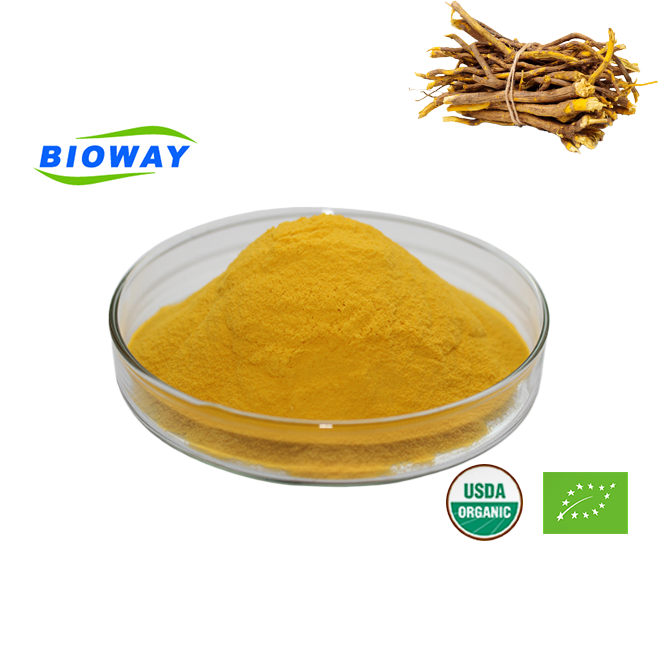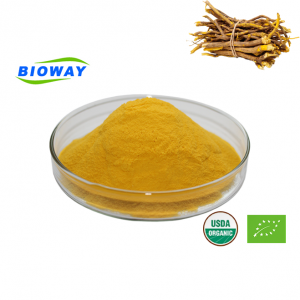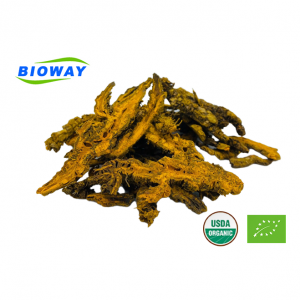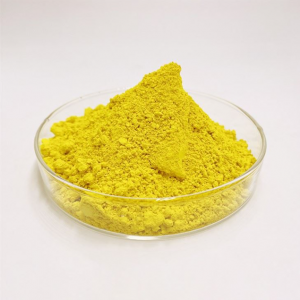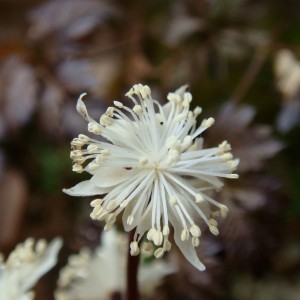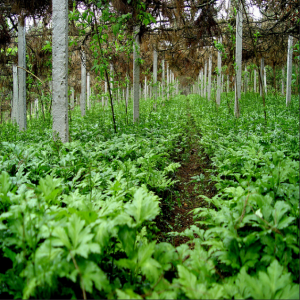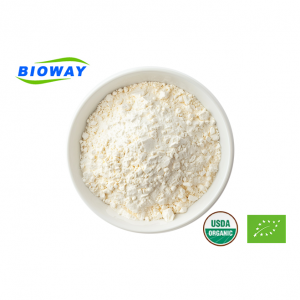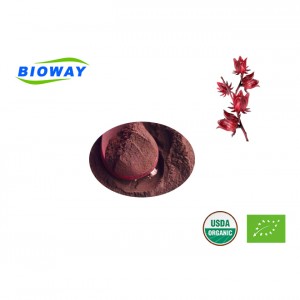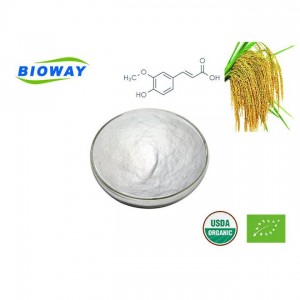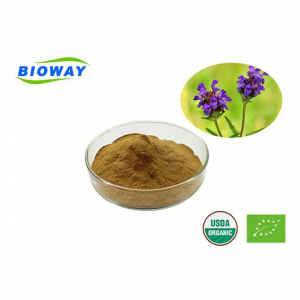Coptis Root Extract Berberine Powder
Coptis Root Extract Berberine Powder, also referred to as Coptis chinensis extract or Huang Lian extract, is derived from the root of the Coptis chinensis plant. It has been traditionally used in Chinese medicine for its various therapeutic properties.
Coptis extract contains several bioactive compounds, with a key component being berberine. Berberine is a natural alkaloid known for its antimicrobial, anti-inflammatory, antioxidant, and antidiabetic effects. It has garnered scientific interest and is the subject of numerous studies exploring its potential health benefits.
One of the notable properties of Coptis extract is its antimicrobial activity. The berberine content contributes to its ability to inhibit the growth of various bacteria, fungi, parasites, and viruses. This antimicrobial effect suggests applications in the treatment and prevention of infections.
Coptis extract also exhibits anti-inflammatory properties. It has been found to reduce the production of pro-inflammatory molecules in the body and inhibit inflammatory pathways. As a result, it may have potential uses in managing inflammatory conditions, such as rheumatoid arthritis and inflammatory bowel disease.
Furthermore, research suggests that Coptis extract, particularly berberine, may have beneficial effects on blood sugar regulation. Berberine has been shown to improve insulin sensitivity, reduce insulin resistance, and regulate glucose metabolism. These findings indicate possible applications in supporting diabetes management.
Additionally, Coptis extract has been studied for its antioxidant effects. The berberine content helps scavenge harmful free radicals and reduce oxidative stress, which is implicated in the development of various chronic diseases. This antioxidant potential suggests potential applications in promoting overall health and preventing age-related disorders.
Coptis extract can be found in various forms, including capsules, powders, and tinctures, and it is often used in traditional Chinese medicine formulations. However, it is essential to note that more research is needed to further understand the mechanisms and potential side effects of Coptis extract. As with any herbal extract or supplement, it is advisable to consult with healthcare professionals before use.
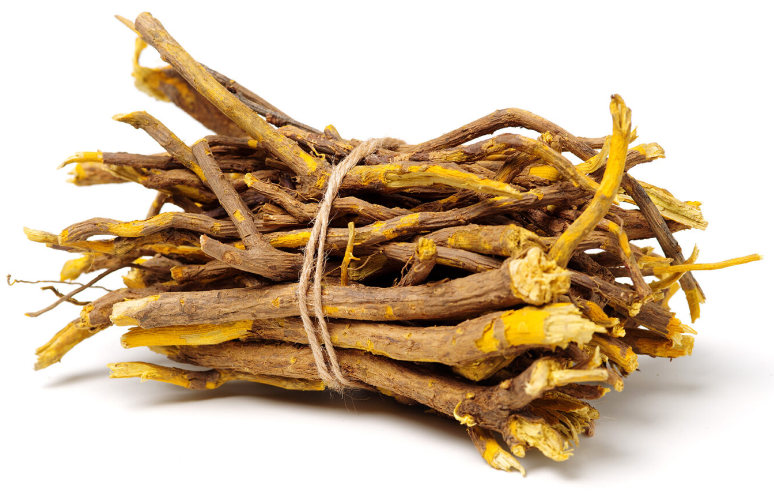
| Item | Specification | Results | Methods |
| Maker Compound | Berberine 5% | 5.56% Conform | UV |
| Appearance & Color | Yellow powder | Conforms | GB5492-85 |
| Odor & Taste | Characteristic | Conforms | GB5492-85 |
| Plant Part Used | Root | Conforms | |
| Extract Solvent | Water | Conforms | |
| Bulk Density | 0.4-0.6g/ml | 0.49-0.50g/ml | |
| Mesh Size | 80 | 100% | GB5507-85 |
| Loss on Drying | ≤5.0% | 3.55% | GB5009.3 |
| Ash Content | ≤5.0% | 2.35% | GB5009.4 |
| Solvent Residue | Negative | Conform | GC(2005 E) |
| Heavy Metals | |||
| Total Heavy Metals | ≤10ppm | <3.45ppm | AAS |
| Arsenic (As) | ≤1.0ppm | <0.65ppm | AAS(GB/T5009.11) |
| Lead (Pb) | ≤1.5ppm | <0.70ppm | AAS(GB5009.12) |
| Cadmium | <1.0ppm | Not Detected | AAS(GB/T5009.15) |
| Mercury | ≤0.1ppm | Not Detected | AAS(GB/T5009.17) |
| Microbiology | |||
| Total Plate Count | ≤10000cfu/g | <300cfu/g | GB4789.2 |
| Total Yeast & Mold | ≤1000cfu/g | <100cfu/g | GB4789.15 |
| E. Coli | ≤40MPN/100g | Not Detected | GB/T4789.3-2003 |
| Salmonella | Negative in 25g | Not Detected | GB4789.4 |
| Staphylococcus | Negative in 10g | Not Detected | GB4789.1 |
| Packing and Storage | 25kg/drum Inside: Double-deck plastic bag, outside: Neutral cardboard barrel & Leave in the shady and cool dry place | ||
| Shelf Life | 3 Year When Stored properly | ||
| Expiration Date | 3 Year | ||
Here are the wholesale product features for Coptis Root Extract Berberine Powder with a specification range of 5% to 98%:
1. High-quality extract: The Coptis Root Extract Berberine Powder is made from carefully selected Coptis chinensis plants to ensure a premium and consistent product.
2. Broad specification range: The extract is available in a specification range of 5% to 98% berberine content, allowing for flexibility in formulating various products with different potency levels.
3. Natural and pure: The extract is derived from natural Coptis root and processed using advanced extraction techniques to preserve its bioactive compounds, ensuring the highest purity and efficacy.
4. Health benefits: Berberine, the main active compound present in Coptis extract, has been studied for its potential health benefits, such as antioxidant, antimicrobial, anti-inflammatory, and blood sugar regulation properties.
5. Multiple applications: The Coptis Root Extract Berberine Powder can be used in a wide range of applications, including dietary supplements, traditional Chinese medicine formulations, functional foods, herbal teas, and skincare products.
6. Trusted supplier: Partnering with a reliable and reputable wholesale supplier ensures consistent quality, reliable sourcing, and adherence to industry regulations and standards.
7. Customizable options: Customers can choose from different specifications of berberine content, allowing greater flexibility in meeting their specific formulation requirements.
8. Competitive pricing: Wholesale purchases of the Coptis Root Extract Berberine Powder offer cost-effective solutions, allowing businesses to maximize their profit margins while delivering quality products to their customers.
9. Excellent solubility: The extract has good solubility in both water and alcohol, making it versatile and easy to incorporate into various formulations.
10. Long shelf life: Properly stored Coptis Root Extract Berberine Powder has a long shelf life, providing businesses the opportunity to stock up on inventory without concerns about product expiration. Remember to verify and showcase any certifications, laboratory testing reports, or quality control measures to earn your customers' trust in the product's quality and safety
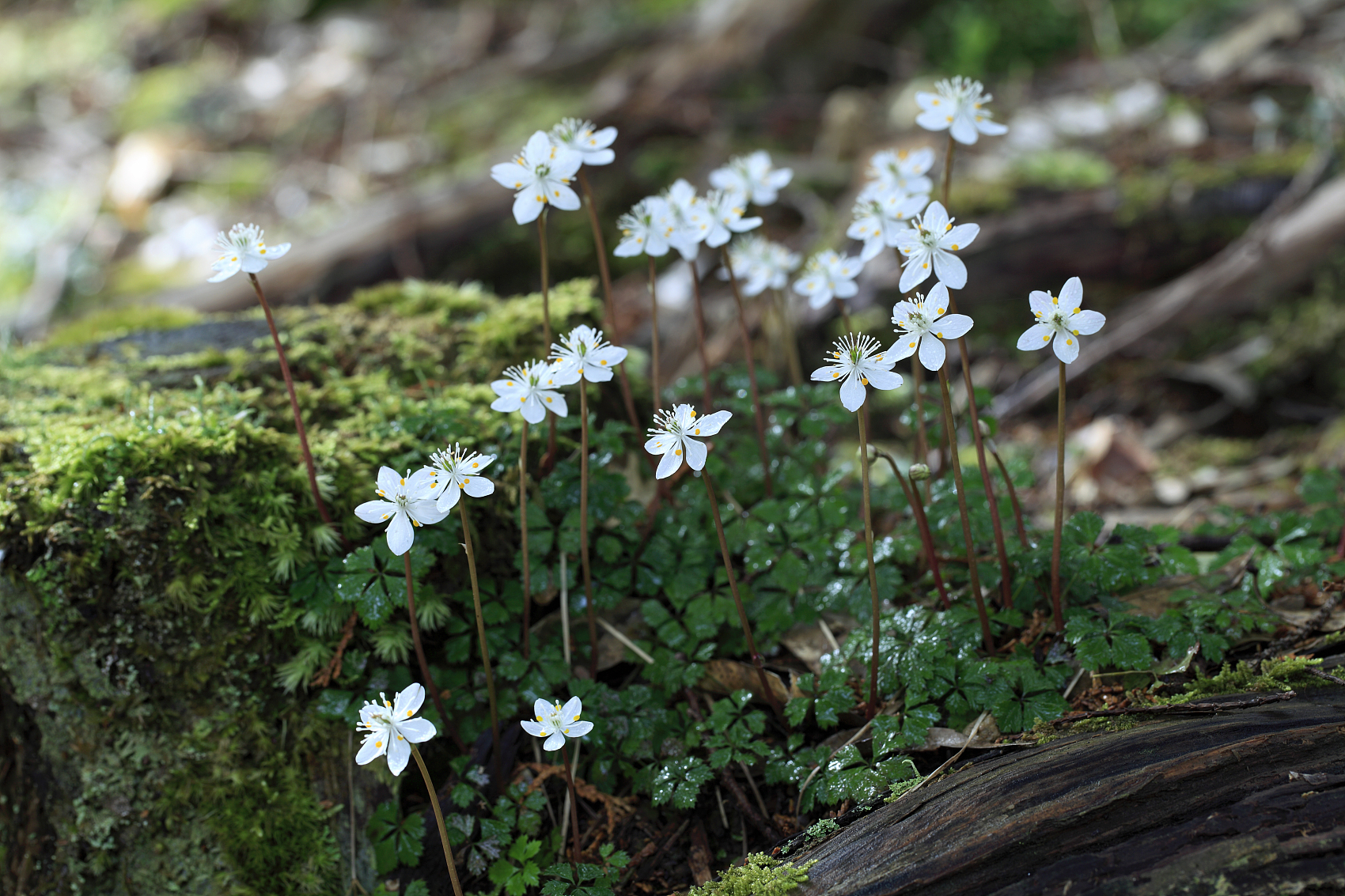
Coptis root extract berberine Powder, derived from the Coptis chinensis plant, has been used in traditional Chinese medicine for its potential health benefits. Some of the potential benefits of Coptis extract include:
1. Antimicrobial properties: Coptis extract contains berberine, which has shown antimicrobial effects against bacteria, fungi, parasites, and viruses. This suggests potential use in preventing and treating infections.
2. Anti-inflammatory effects: Studies have found that Coptis extract, particularly berberine, exhibits anti-inflammatory properties by reducing the production of pro-inflammatory molecules and inhibiting inflammatory pathways. This may be beneficial for managing conditions associated with chronic inflammation.
3. Regulation of blood sugar levels: Berberine in Coptis extract has been shown to improve insulin sensitivity, reduce insulin resistance, and regulate glucose metabolism. This suggests potential applications in managing diabetes and blood sugar regulation.
4. Antioxidant activity: The antioxidant properties of Coptis extract, due to its berberine content, contribute to the scavenging of harmful free radicals and the reduction of oxidative stress. This may have implications for overall health and preventing age-related disorders.
It is important to note that while Coptis extract has shown potential health benefits, more research is needed to fully understand its effects and mechanisms of action. Additionally, individual results may vary, and it is always advisable to consult with healthcare professionals before using any herbal extract or supplement.
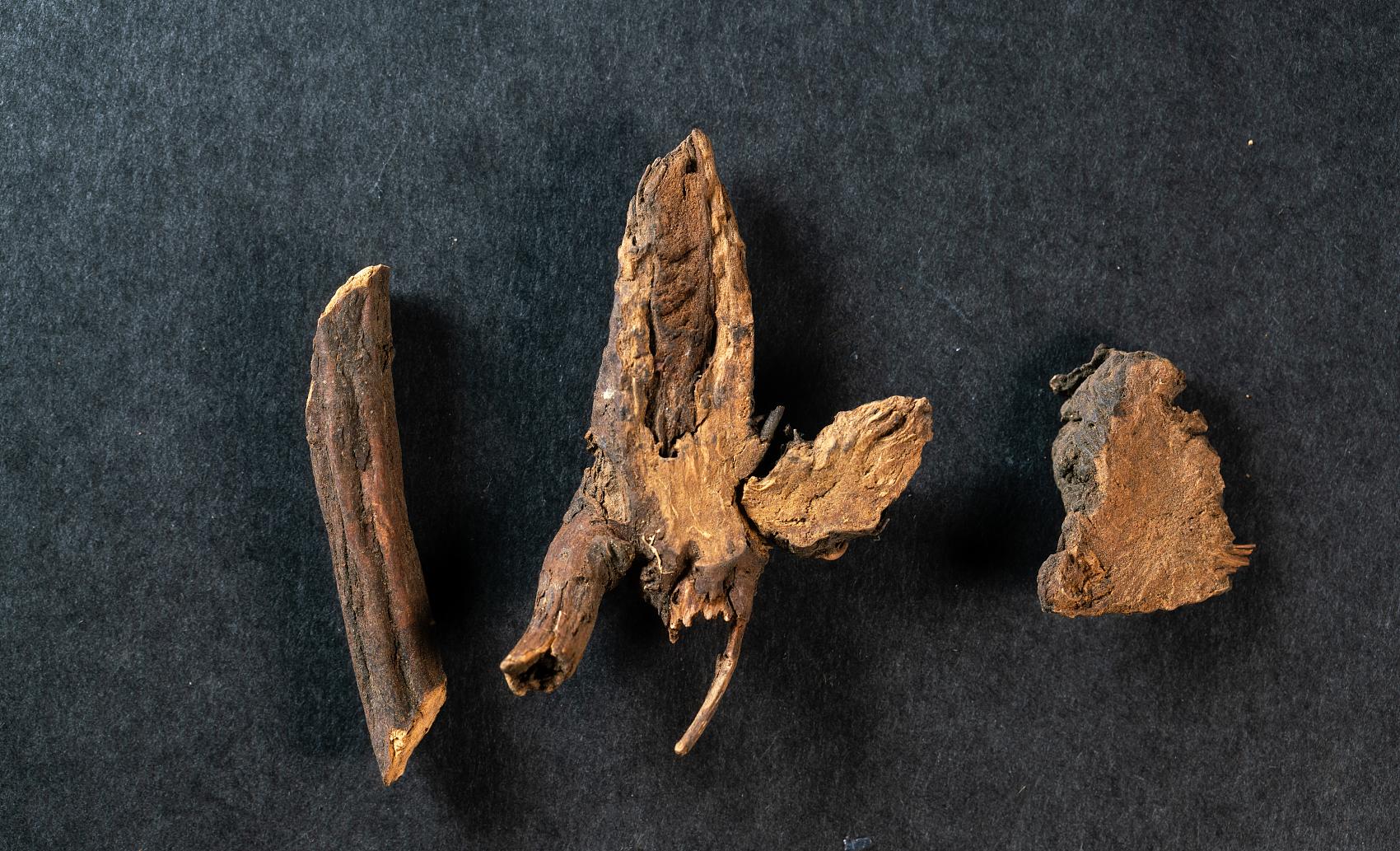
Coptis extract has a variety of potential application fields due to its beneficial properties. Some of these application fields include:
1. Traditional Chinese Medicine: Coptis extract has long been used in traditional Chinese medicine for its antimicrobial, anti-inflammatory, and digestive properties. It is often included in herbal formulas to treat various ailments.
2. Oral Health: Coptis extract's antimicrobial properties make it useful in oral care products. It can be found in mouthwashes, toothpaste, and dental gels to help combat oral infections, reduce plaque formation, and improve gum health.
3. Digestive Health: Coptis extract has a long history of use in supporting digestive health. It may help alleviate symptoms of indigestion, diarrhea, and gastrointestinal infections. It is also being studied for its potential role in managing inflammatory bowel diseases like ulcerative colitis and Crohn's disease.
4. Skin Care: Coptis extract's antimicrobial and anti-inflammatory properties make it suitable for skin care applications. It can be found in creams, lotions, and serums to help treat acne, soothe inflammation, and promote healthy skin.
5. Metabolic Health: Coptis extract, specifically its berberine content, has been studied for its potential benefits in managing metabolic conditions such as diabetes, obesity, and non-alcoholic fatty liver disease. It may help regulate blood sugar levels, improve insulin sensitivity, and support weight management.
6. Cardiovascular Health: Berberine in Coptis extract has shown potential for cardiovascular benefits. It may help reduce cholesterol levels, lower blood pressure, and improve heart function. These properties make it a potential supplement for supporting heart health.
7. Immune Support: Coptis extract's antimicrobial and immunomodulatory properties suggest it may have a role in enhancing immune system function. It may help support the body's natural defense mechanisms against infections and boost immune response.
8. Anticancer Potential: Some preliminary studies indicate that Coptis extract, particularly berberine, may inhibit the growth and spread of cancer cells in various types of cancer. However, more research is needed to determine its efficacy and safety in cancer treatment.
It's important to note that while there is scientific evidence supporting many of these potential applications, further research is still ongoing to fully understand the effectiveness and safety of Coptis extract in various fields.
Here is a simplified process flow chart for producing Coptis Root Extract Berberine Powder with a specification range of 5% to 98%:
1. Harvesting: Coptis chinensis plants are carefully cultivated and harvested at the appropriate maturity stage to ensure optimal berberine content.
2. Cleaning and sorting: The harvested Coptis roots are thoroughly cleaned to remove dirt and other impurities. They are then sorted to select the best-quality roots for extraction.
3. Extraction: The selected Coptis roots are processed through an extraction method, such as solvent or water extraction, to obtain a concentrated extract. This step involves macerating the roots and subjecting them to specific temperature and pressure conditions to extract the berberine compound.
4. Filtration: After the extraction process, the resulting liquid extract is passed through a filtration system to remove any solid particles or impurities.
5. Concentration: The filtered extract is then subjected to a concentration process through techniques like evaporation or membrane filtration. This step aims to reduce the extract's volume while increasing the berberine content.
6. Separation and purification: If required, additional separation and purification processes, such as chromatography or crystallization, may be employed to further refine the extract and isolate the berberine compound.
7. Drying: The concentrated extract containing the desired berberine specification range is dried using methods like spray drying or freeze-drying to remove excess moisture and transform it into a powder form.
8. Testing and quality control: The dried powder is carefully tested and analyzed in a laboratory to ensure its berberine content falls within the specified range. Quality control measures, such as testing for heavy metals, microbial contamination, and other impurities, are also performed to ensure product safety and compliance with regulatory standards.
9. Packaging: The final Coptis Root Extract Berberine Powder is packaged in suitable containers, such as sealed bags or bottles, to maintain its quality and extend its shelf life.
10. Labeling and storage: Proper labeling with essential product information, including berberine content, batch number, and manufacturing date, is applied to each package. The finished products are stored in a controlled environment to preserve their potency until they are shipped or distributed.
It is important to note that the actual production process may vary depending on the manufacturer's specific equipment, extraction method, and other factors. This simplified process flow chart provides a general overview of the key steps involved in producing Coptis Root Extract Berberine Powder.
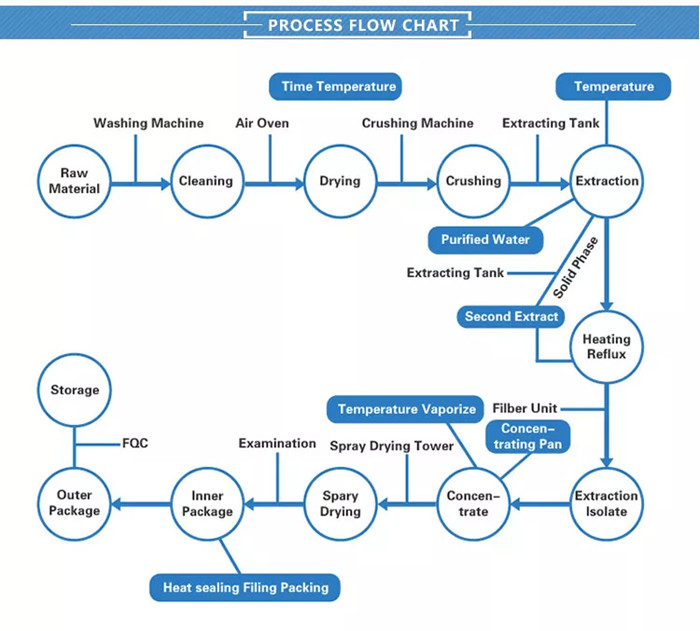
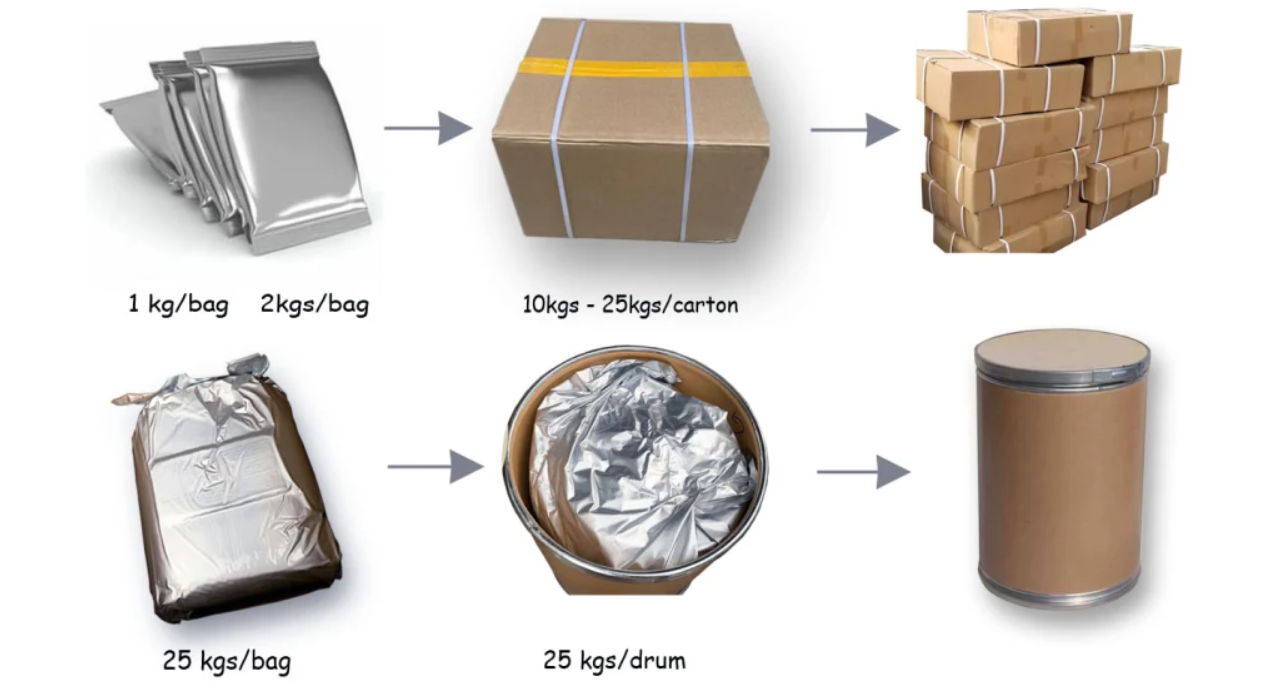
Express
Under 100kg, 3-5Days
Door to door service easy to pick up the goods
By Sea
Over300kg, Around 30 Days
Port to port service professional clearance broker needed
By Air
100kg-1000kg, 5-7Days
Airport to airport service professional clearance broker needed

Coptis Root Extract Berberine Powder with a specification range of 5% to 98% is certified by USDA and EU organic, BRC, ISO, HALAL, KOSHER, and HACCP certificates.

No, Coptis chinensis and berberine are not the same. Coptis chinensis, commonly known as Chinese goldthread or Huanglian, is a herbaceous plant native to China. It belongs to the Ranunculaceae family and has been used in traditional Chinese medicine for its various health benefits.
Berberine, on the other hand, is an alkaloid compound that is found in several plant species, including Coptis chinensis. It is known for its antimicrobial, anti-inflammatory, and antioxidant properties and is commonly used as a supplement or in traditional medicine.
So while Coptis chinensis contains berberine, it is not synonymous with berberine itself. Berberine is extracted or derived from plants like Coptis chinensis and can be used separately or as part of herbal formulations.
When it comes to the absorbability of berberine, there are a few different forms and formulations that can enhance its bioavailability. Here are some options:
1. Berberine HCl: Berberine hydrochloride (HCl) is the most common form of berberine found in supplements. It is well-absorbed by the body and has been extensively studied for its various health benefits.
2. Berberine Complex: Some supplements combine berberine with other compounds or herbal extracts that enhance its absorption and effectiveness. These complexes may include ingredients like black pepper extract (piperine) or extracts of plants known to improve absorption, such as Phellodendron amurense or Zingiber officinale.
3. Liposomal Berberine: Liposomal delivery systems use lipid molecules to encapsulate berberine, which can improve its absorption and provide better delivery to the cells. This form allows for increased bioavailability and can potentially enhance the effects of berberine.
4. Nanoemulsified Berberine: Similar to liposomal formulations, nanoemulsified Berberine uses tiny droplets of berberine suspended in an emulsion. This method can improve absorption and potentially increase the efficacy of berberine.
It's important to note that the effectiveness of berberine may vary based on individual factors and the specific condition being treated. Consulting with a healthcare professional or pharmacist can help determine the best form and dosage of berberine for your specific needs.
The purest form of berberine is pharmaceutical-grade berberine. Pharmaceutical-grade berberine is a highly purified form of berberine that is produced under strict quality control standards and is free of impurities and contaminants. It is typically manufactured in a laboratory setting using advanced extraction and purification techniques.
Pharmaceutical-grade berberine is often preferred for its high potency, reliable quality, and purity. It ensures that you are getting a standardized and consistent dose of berberine, which makes it a reliable choice for those seeking the therapeutic benefits of this compound. When purchasing berberine, it is advisable to look for reputable brands that offer pharmaceutical-grade products to ensure you are getting the purest form available.

